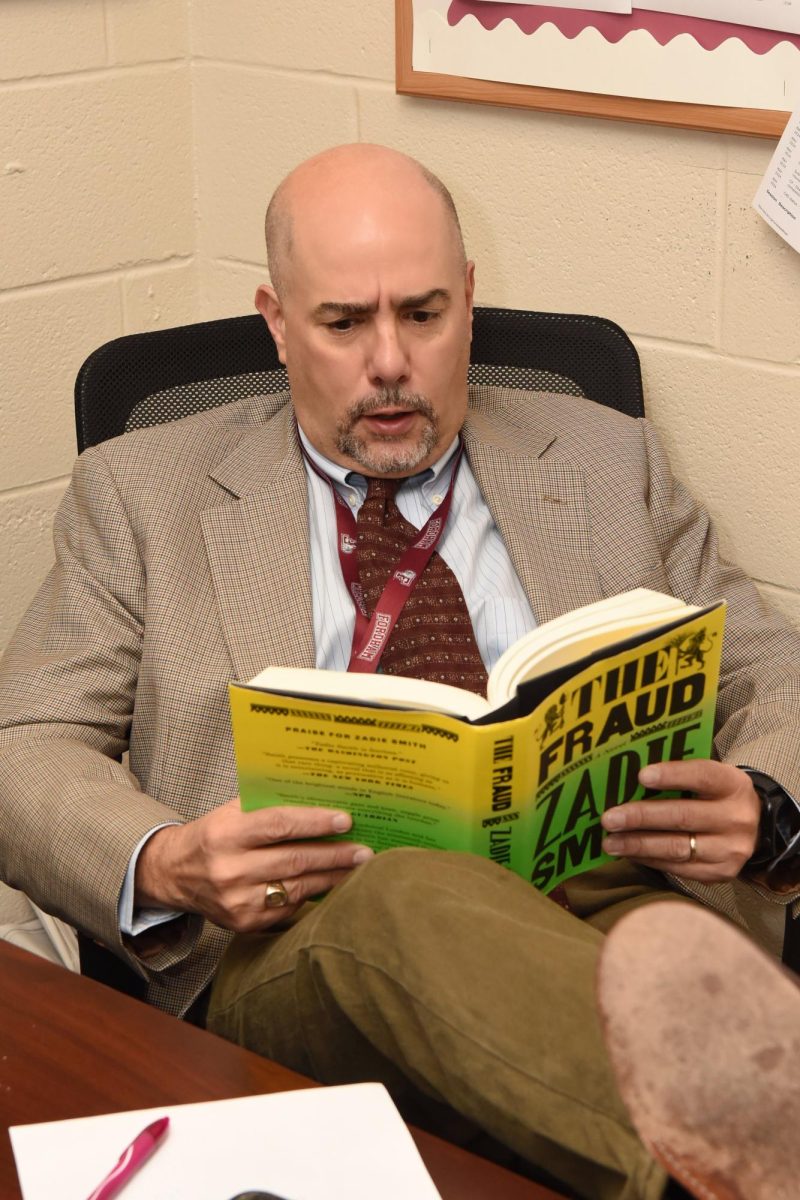Dr. Phillip Cicione is an 11th and 12th grade English teacher, and Fordham University fanatic, who challenges the general convictions governing what it means to be an English teacher.
“I like sharing the things I know with young people and I hope that what I can give them is something they can take with them to the next level I’ve been teaching seniors pretty much since I have been teaching here, so my students are closer to being college freshmen than they are to being high school freshmen,” said Dr. Cicione.
Cicione values fostering individual growth and critical thinking skills, skills some people may feel are dwindling in modern society. Creating an environment in which students can comfortably share is important to his teaching style.
“I like to try to create an environment, and I hope to create an environment, where students feel comfortable to share their ideas. I think that it’s important to have multiple voices in an English classroom, I don’t think it should just be my opinions. Students should hear what their peers have to say about the material we’re studying, which will help them come up with their own ideas,” said Cicione.
One of the ways in which Cicione is able to create a conversation inducing environment is by his physical classroom setup. Students who walk into his classroom often notice the somewhat unconventional layout of the desks. The chairs form a circle and Dr. Cicione joins them in the circle, sitting at one of the desks just as any student would.
It is the subtle choices such as this that create such an inviting, comfortable environment.
“I like the idea of putting a question out there that can hopefully germinate ideas rather than me just sitting there and lecture or have PowerPoint slides with only my own ideas so the way that you question students I think can help to create that. Not asking who is, but why do you think,” said Cicione.
Dr. Cicione teaches by having his students think about and expand upon their own ideas.
Much to many of Cicione’s students’ delight, he doesn’t believe in the idea of giving his students traditional tests.
“I think that in English classroom testing can create an atmosphere of regurgitation rather than critical thinking. Questions like ‘who is the narrator?’ that doesn’t allow for critical thinking, that’s like finding a spot on the map and I would rather ask a question like ‘what is the most relevant point in the novel to you and why?’ That allows for more individual thought,” said Cicione.
The emphasis of standardized testing and other rigid testing methods in the present day educational system causes many to argue that analytical thinking is dying. In a world void of discerning thought, Dr. Cicione is augmenting the critical thinking skills of the next generation.◼️









